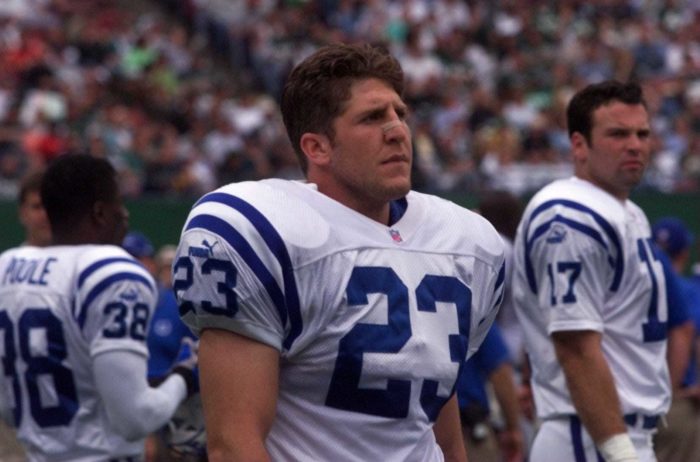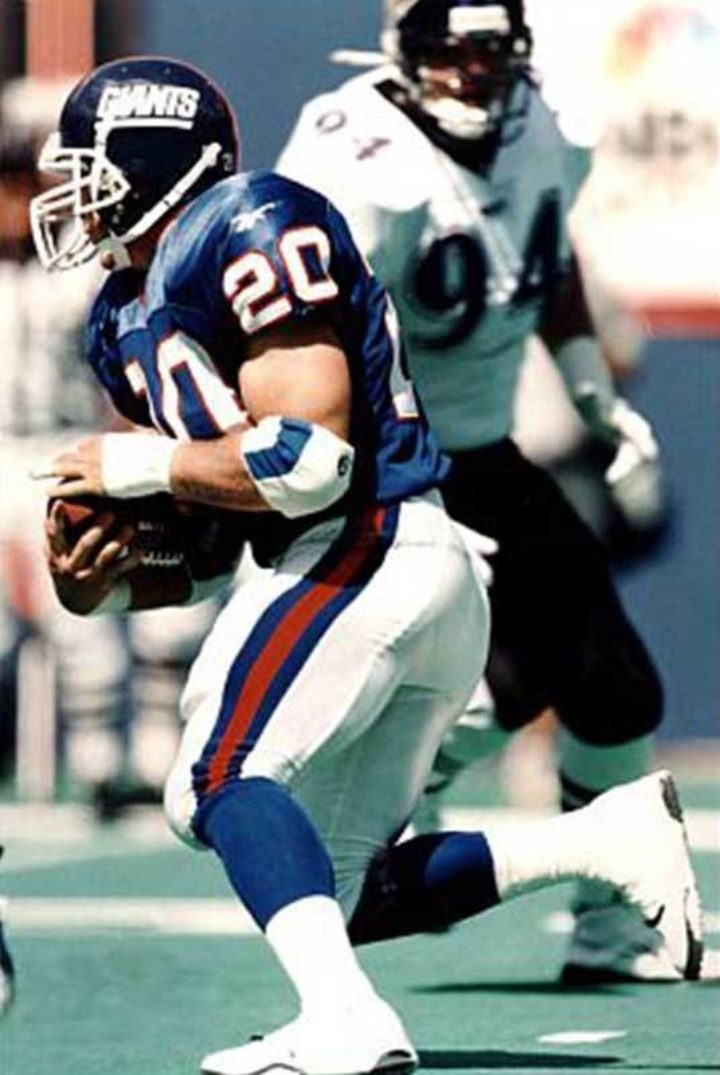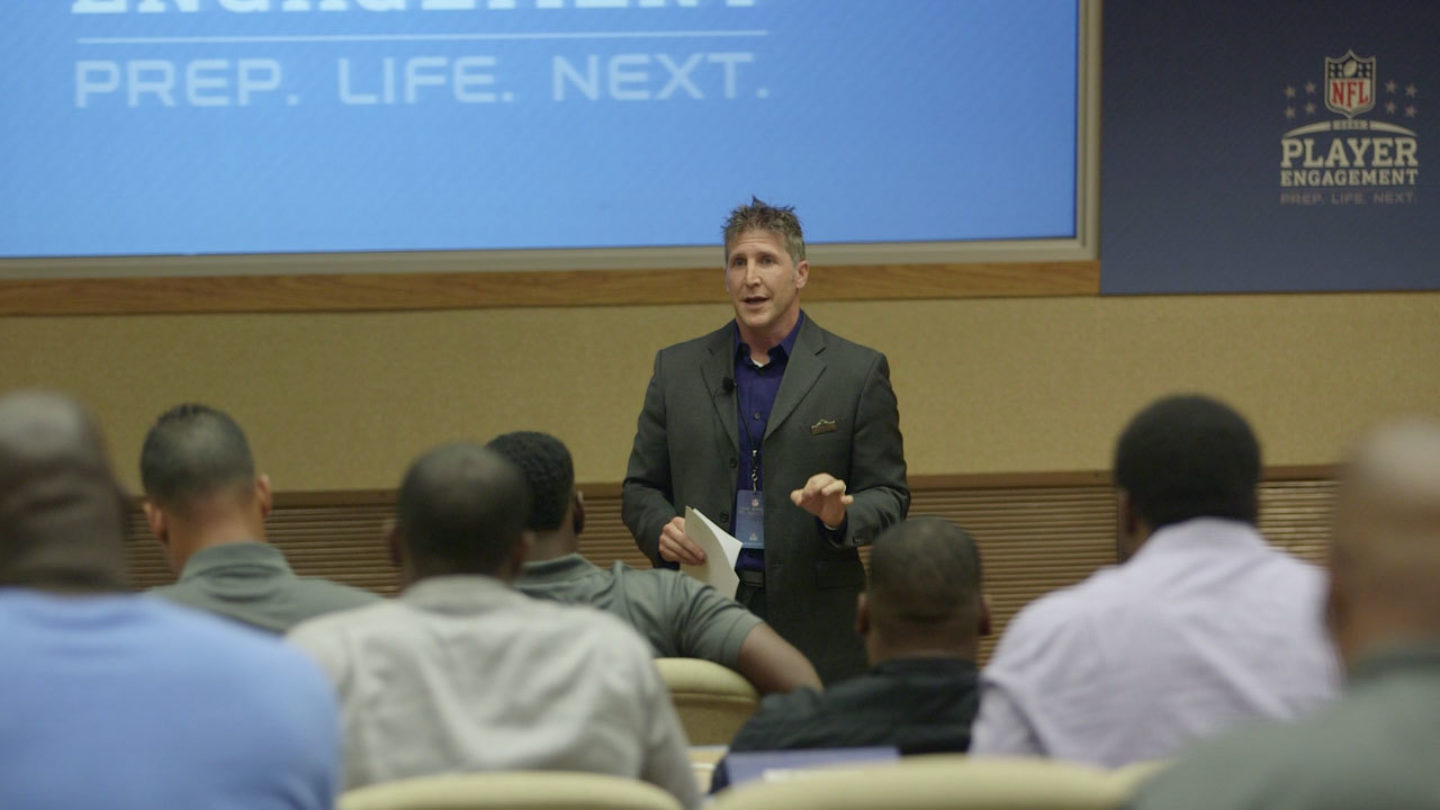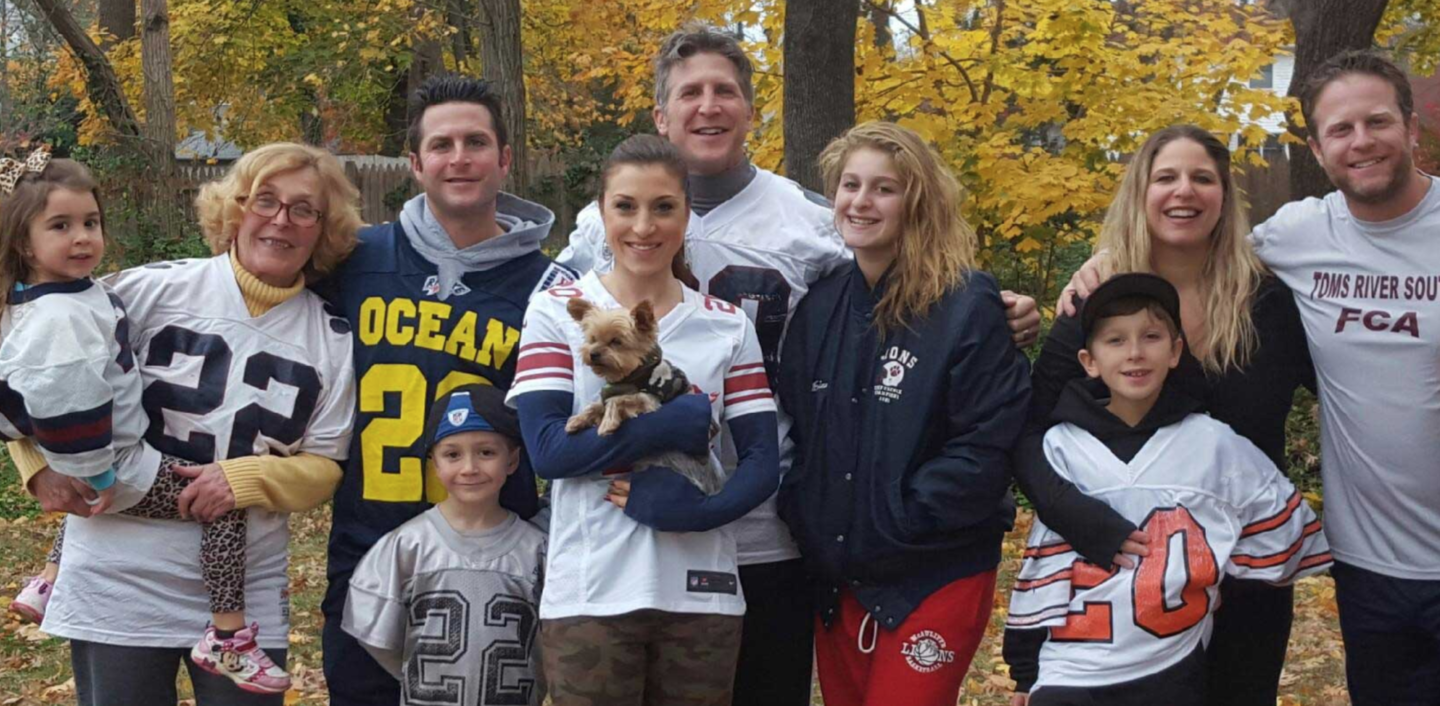I think there’s a whirlwind where half of you (at least in my case) is looking at what you did or didn’t accomplish, and wondering if it was over. Then the other part was trying to muster up the initiative to begin the next chapter.

Keith Elias is a former NFL RB who played five seasons with the New York Giants and the Indianapolis Colts between 1994-1999. After the game he became the Director of the Player Engagement department for the NFL.
I think there were two: financial and the identity piece. Without knowing it, I had really fallen into that trap where I identified myself as an NFL football player. Once it’s over, it’s very easy to still cling to that identity to say I was an NFL football player, but you get stuck there. I could feel that drawing me in.
As far as the second piece with the finances, you get used to a certain amount of money and a certain lifestyle, and then you realize you’re not going to be able to fund that lifestyle anymore. Then there comes this little depression, this little moment of realization. The odd thing was that was also a motivator to get off the couch and find something. But when I did and money was coming in, I still wanted people to think that the money I was now making was from when I was playing. As if there was some greater elevation in money coming from my NFL career.
“ You get used to a certain amount of money and a certain lifestyle, and then you realize you’re not going to be able to fund that lifestyle anymore. Then there comes this little depression, this little moment of realization. ”

It’s interesting because at that time I didn’t know of any NFL, NFLPA, or official services to help me through that transition. The Trust wasn’t around at this time. There were some mentors in my life from my university that I would chat with and talk to, but a lot was left to navigate on my own with the support of my family. But I didn’t have any official support.
I also met a clinician during that time. I ended up meeting him for somebody else, but then I chose to see him for a little bit during that transition to just talk some things through. I found it extraordinarily helpful, having a licensed clinician. So, I recommend that to anybody. I remember even thinking that I didn’t want to meet in that office, because I didn’t want people seeing me going in and out of that office because I looked at that as weak. But, I was getting help, so it was good.
I wish they knew about all of them. Just like the rookie programming for the guys coming in, I wish the guys used the Bridge to Success program coming out. From there, that’s like a one stop shop for every other benefit and resource that they can utilize.
I think one of the most refreshing skills that we have as NFL players, that a lot of people in corporate America don’t, is our ability to fold into the team concept. I find that being a team player and rooting for the people around you to be successful is rare in the world today. If you couple that with the resilience that it takes to be an NFL player, the resilient mindset, you really have a recipe for success off the field.
“ I think one of the most refreshing skills that we have as NFL players, that a lot of people in corporate America don’t, is our ability to fold into the team concept. ”

I heard about the NFL raising up transition coaches, this was several years ago. I knew the Director of Player Engagement for the Giants, Charles Way, and I asked him if he knew about the program. He connected me with Troy Vincent, who was running player engagement at the time.
So, my wife and I went in, and I interviewed for that position. I ended up becoming one of the first transition coaches that we had. That was my entrance into the player engagement space. From there, I ended up becoming a consultant in the Legends community as a coordinator, and from there bounced into player engagement part-time. Then a couple years ago, became full-time as a Director of Former Players initiative.
Every player has a different situation, so one thing I try to say is: Breathe. It can feel overwhelming, so just breathe and spend some time thinking through your own heart. Then, create the plan. Be ready to modify it, but work it. Find the passion, and then weigh out what it will take to get to the passion.
“ It can feel overwhelming, so just breathe and spend some time thinking through your own heart. ”
I think that some of the proudest moments I’ve had, have been the quietest. So, connecting with my wife before we were married, then of course, getting married. Also, having the privilege to speak into a man’s life, whether it’s at breakfast or over the phone.
From a career perspective, I think I’m most proud of the team in Player Engagement, and the way their heart is toward our mission. Because of that heart, we’ve been able to put together the Bridge to Success and Transition Coaches programs over the last few years. Those two things, I find, are really helping people in a very deep way. It’s all because of the great men and women on the team.

I would ask them why? What is it about the resources that have you hesitant to participate. A lot of times, guys don’t want to take that first step because they feel like it’s them closing their door and they don’t want to. We try to tell them to take the first step and if a team calls, you can always go back! But don’t just tread water.
One of the biggest passions in my life is writing, and it’s one of those things that have to be wrapped into your life and your schedule. The masters class I was able to take because of The Trust Scholarship gave me the resources and the knowledge of things that I had never learned before. That really super jacked my writing to the point where I’m able to get some stuff in front of producers, agents, and have a viable side career outside my main career.
And, my experience with EXOS was no less than life changing, to be honest. The reason I say that is because I went with pains I thought I was going to have to live with forever. I was shocked and amazed that in one week, they were able to help me and clearly identify why. Then, give me a game plan on how to mitigate them. It was fantastic.
In terms of The Trust, it's funny, but trust it. The Trust is accurately named, and they really love and take care of players.
“ The Trust is accurately named, and they really love and take care of players. ”
This player spotlight was originally published in August 2017.
The Trust is here to support you.
Ready to learn how?
Related Spotlights
Kris Wilson
From NFL star to Emmy-winning storyteller, Kris Wilson turns grit into film magic.
Ryan Kuehl
From NFL grind to life-changing innovation - Ryan Kuehl's turning purpose into impact.